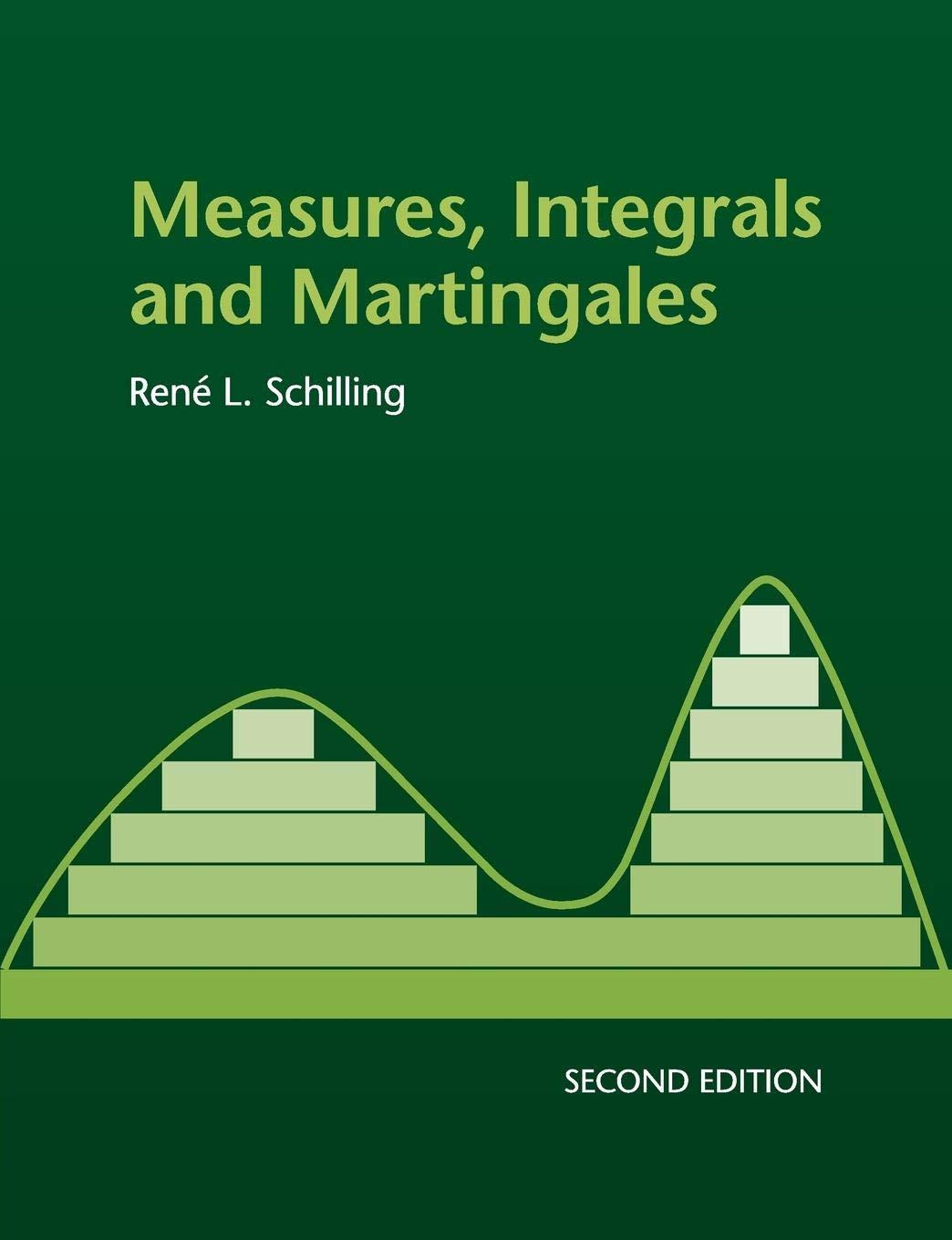Let (lambda) be one-dimensional Lebesgue measure. (i). Show that for all (x in mathbb{R}) the set ({x})
Question:
Let \(\lambda\) be one-dimensional Lebesgue measure.
(i). Show that for all \(x \in \mathbb{R}\) the set \(\{x\}\) is a Borel set with \(\lambda\{x\}=0\).
[ consider the intervals \([x-1 / k, x+1 / k), k \in \mathbb{N}\) and use Proposition 4.3 (vii).]
(ii). Prove in two ways that \(\mathbb{Q}\) is a Borel set and \(\lambda(\mathbb{Q})=0\) :
(a). by using the first part of the problem;
(b). by considering the set \(C(\epsilon):=\bigcup_{n \in \mathbb{N}}\left[q_{n}-\epsilon 2^{-n}, q_{n}+\epsilon 2^{-n}ight)\), where \(\left(q_{n}ight)_{n \in \mathbb{N}}\) is an enumeration of \(\mathbb{Q}\), and letting \(\epsilon ightarrow 0\).
(iii). Use the trivial fact that \([0,1]=\bigcup_{0 \leqslant x \leqslant 1}\{x\}\) to show that a non-countable union of null sets (here \(\{x\}\) ) is not necessarily a null set.
Step by Step Answer:






